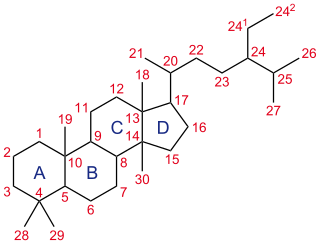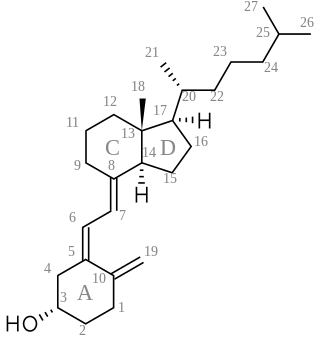Top Qs
Timeline
Chat
Perspective
Secosteroid
Class of chemicals derived from steroids From Wikipedia, the free encyclopedia
Remove ads
A secosteroid (/ˈsɛkoʊˌstɛrɔɪd/) is a type of steroid with a "broken" ring. The word secosteroid derives from the Latin verb secare meaning "to cut",[2]: 241 and 'steroid'. Secosteroids are described as a subclass of steroids under the IUPAC nomenclature.[1][1]: §3S-1 [3] Some sources instead describe them as compounds derived from steroids.[4]


Types or subclasses of secosteroids are defined by the carbon atoms of the parent steroid skeleton where the ring cleavage has taken place. For example, 9,10-secosteroids are derived from cleavage of the bond between carbon atoms C9 and C10 of the steroid B-ring (similarly 5,6-secosteroids, 13,14-secosteroids, etc.).[1]: §3S-8
The prototypical secosteroid is cholecalciferol (vitamin D3).[5] Its IUPAC systematic is "(5Z,7E)-(3S)-9,10-secocholestra-5,7,10(19)-trien-3-ol".[1]: §3S-8
Some nonsteroidal estrogens, like doisynolic acid (cleaved on the D ring)[6] and allenolic acid,[citation needed] are also secosteroids or secosteroid-like compounds.
Remove ads
See also
References
External links
Wikiwand - on
Seamless Wikipedia browsing. On steroids.
Remove ads
